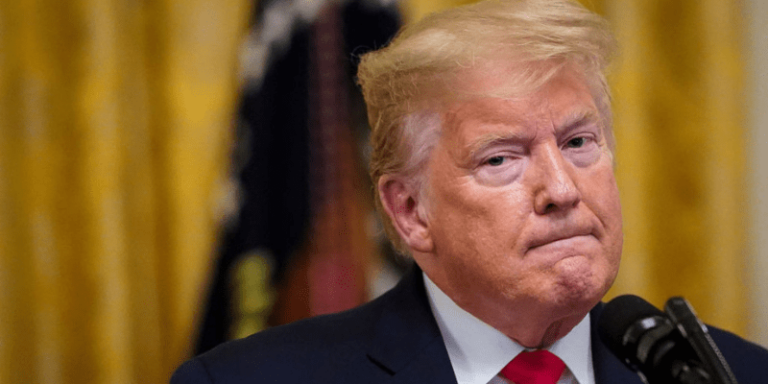The History of Impeachment
Three presidents have been impeached.
By: Kelli Ballard | September 29, 2019 | 675 Words

(Photo by Drew Angerer/Getty Images)
What happens when a president is impeached? Although the term may sound common today, only three presidents in the history of the U.S. have been impeached, or in one case, resigned before the vote to impeach. Out of those presidents, none has ever been convicted of a crime and removed from office.
The Process
Article II, Section 4 of the Constitution stipulates that a president “shall be removed from office on impeachment for, and conviction of, treason, bribery, or other high crimes and misdemeanors.”
First, the members of the House of Representatives debate and vote on whether to bring charges against the president. A simple majority vote is needed. If the House approves the resolution, then the Senate holds a trial with the chief justice of the Supreme Court presiding. To convict and remove a president, a two-thirds majority vote is required. So far, no sitting president has been removed from office this way.
President Andrew Johnson
Andrew Johnson was the 17th president of the U.S. and the first to be impeached. He had taken over the role of president after Abraham Lincoln was assassinated. In 1868, a dispute rose between the Democrat Johnson and the Republican-controlled House over Civil War Reconstruction.
In 1868, the president attempted to fire Secretary of War Edwin Stanton and the House decided to seek impeachment. The Senate didn’t convict Johnson and the trial was adjourned.

(Getty Images)
President Richard Nixon
In 1974, members of the House began to investigate Richard Nixon, the 37th president. Nixon was never formally impeached, as he resigned from office to avoid it. Most of the charges related to the infamous Watergate scandal of 1972.
“Watergate” refers to the Washington, D.C. building where several burglars were arrested in the office of the Democratic National Committee. The burglars had been caught wiretapping phones and stealing documents. This was during the presidential election campaign and Nixon took steps to cover up the crimes. When it seemed obvious Congress would vote in favor of impeachment, Nixon resigned.
President Bill Clinton
The House voted in October 1998 to begin impeachment proceedings against the 42nd president, Bill Clinton, about his inappropriate conduct toward White House intern Monica Lewinsky. Clinton was impeached on grounds of perjury and obstruction of justice after lying about his relationship with Lewinsky. However, on February 12, the Senate voted not to convict, and Clinton finished out the rest of his presidential term in office.

Bill Clinton (Photo by David Hume Kennerly/Getty Images)
President Donald Trump
President Trump was the third U.S. president to be impeached – and the first to be impeached twice in one term.
Trump’s First Impeachment: In August 2019, a whistleblower claimed that Trump had an inappropriate call with the president of Ukraine, Volodymyr Zelensky. During the phone conversation, Trump asked Zelensky to investigate former Vice President Joe Biden and his son, since there had been claims of corrupt dealings in that country.
Since Joe Biden was at that time a potential candidate for president, some accused Trump of abusing his position to try to dig up dirt on his political opponents and gain an advantage in the next election. The House voted to impeach Trump, but he was acquitted in the Senate.
Trump’s Second Impeachment: Donald Trump was impeached a second time right at the end of his term as president. He was accused of inciting a riot at the Capitol building on January 6, 2021.
The unrest occurred over the result of the 2020 election, which Trump lost. He and his supporters accused his opponents of cheating. A large protest was held in Washington, D.C. on the day when Congress was to formally verify the vote count. A group of protesters invaded the Capitol building and disrupted Congress. Trump was accused of inciting violence with a speech he gave outside the White House that day. He was impeached but not convicted.
The incident also raised questions about what impeachment actually means, since the trial was held after Trump had formally left office.

















